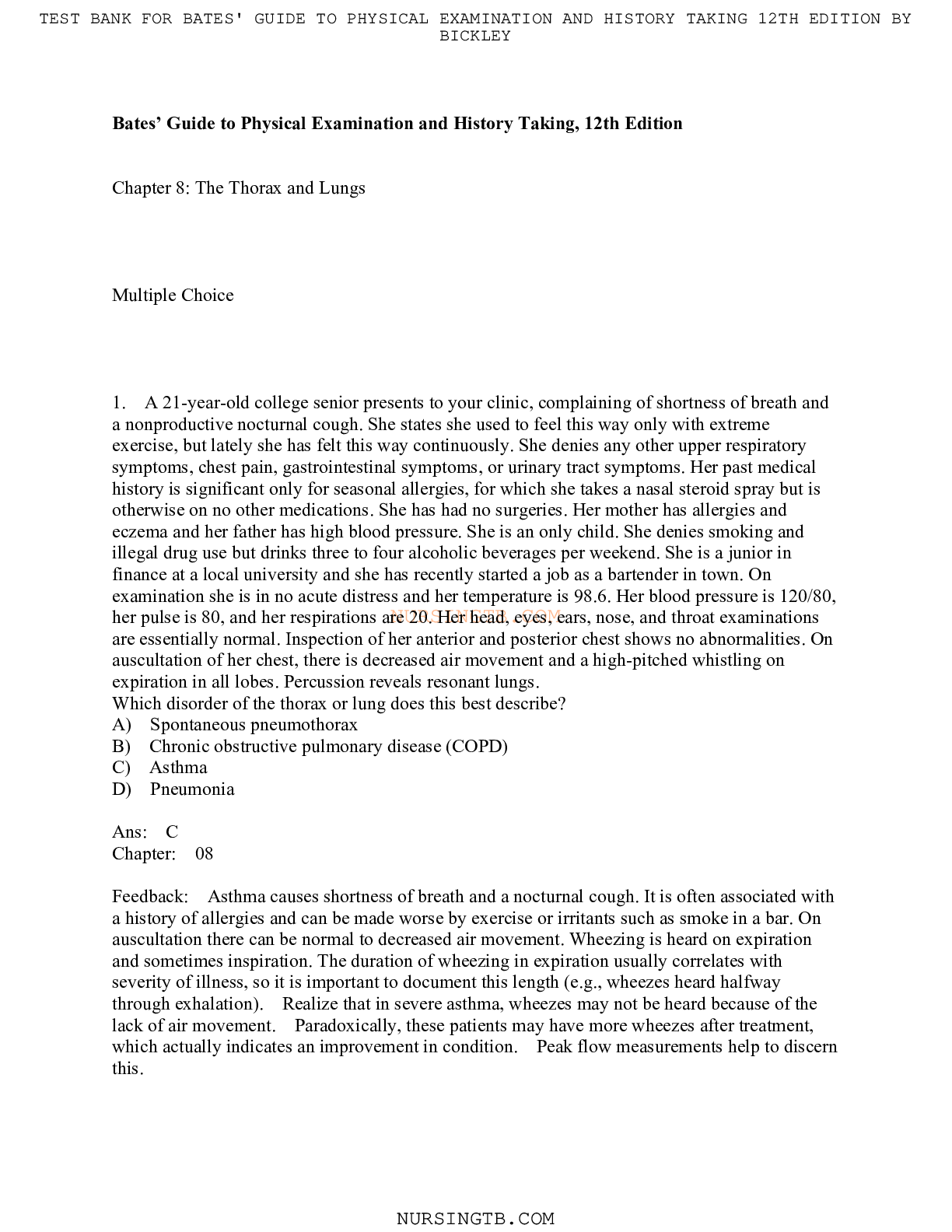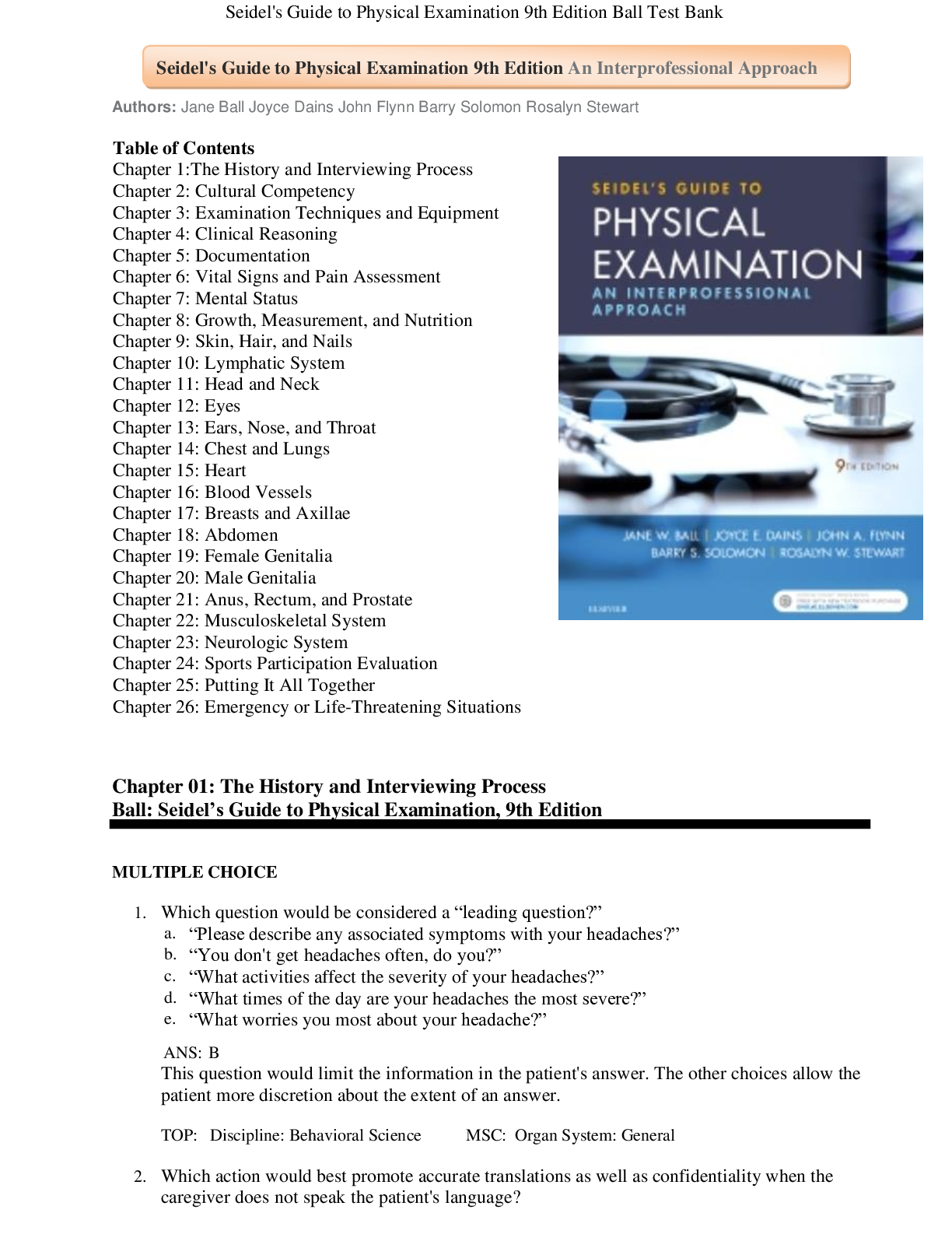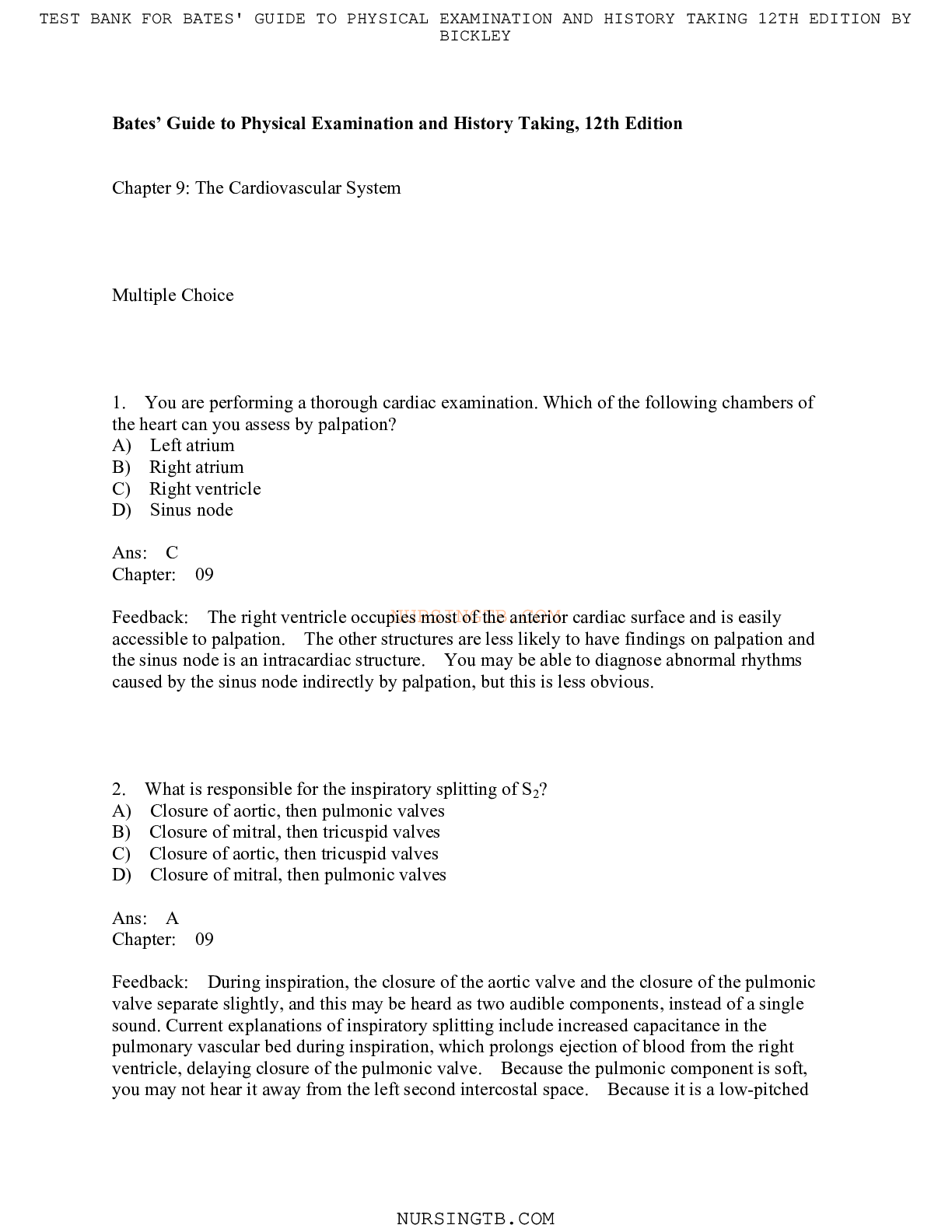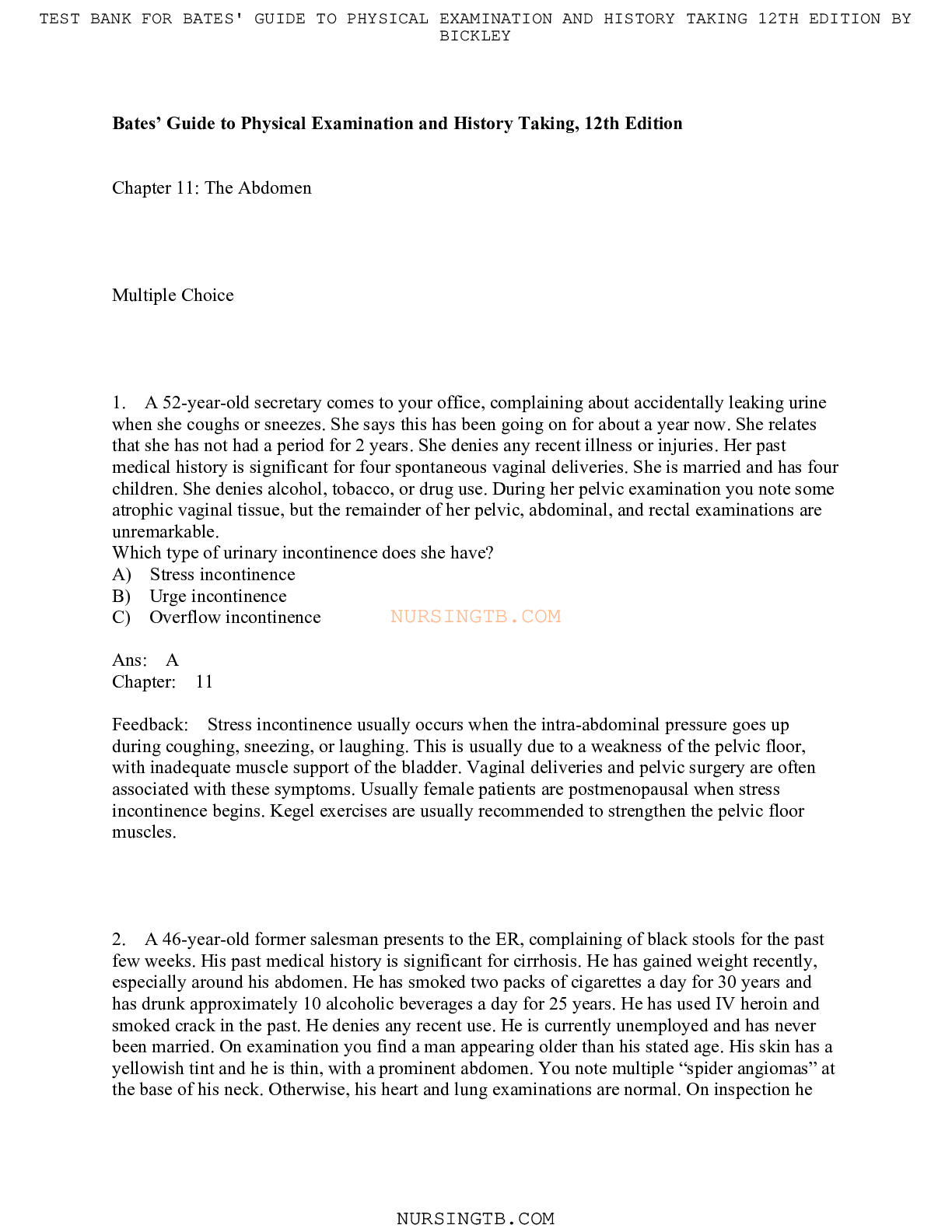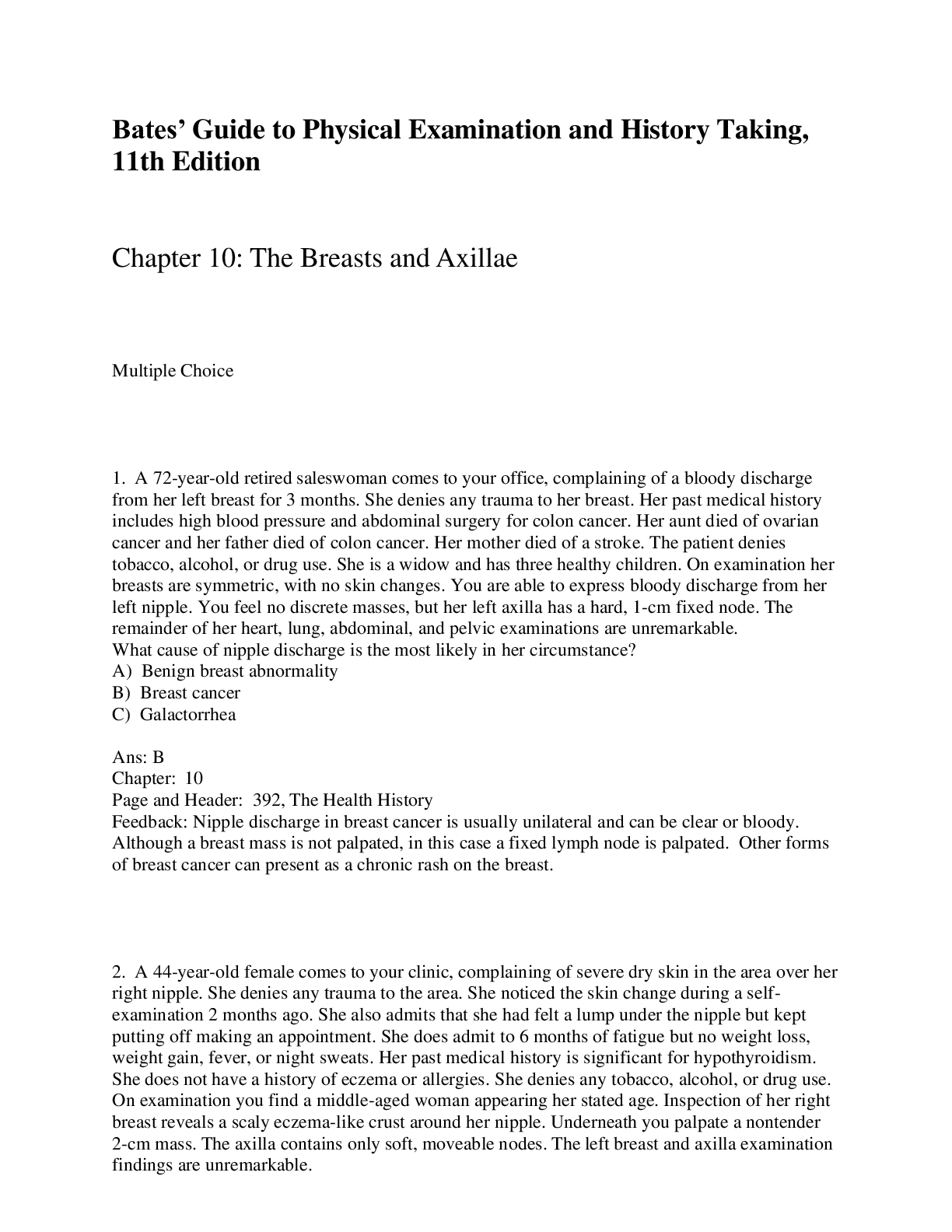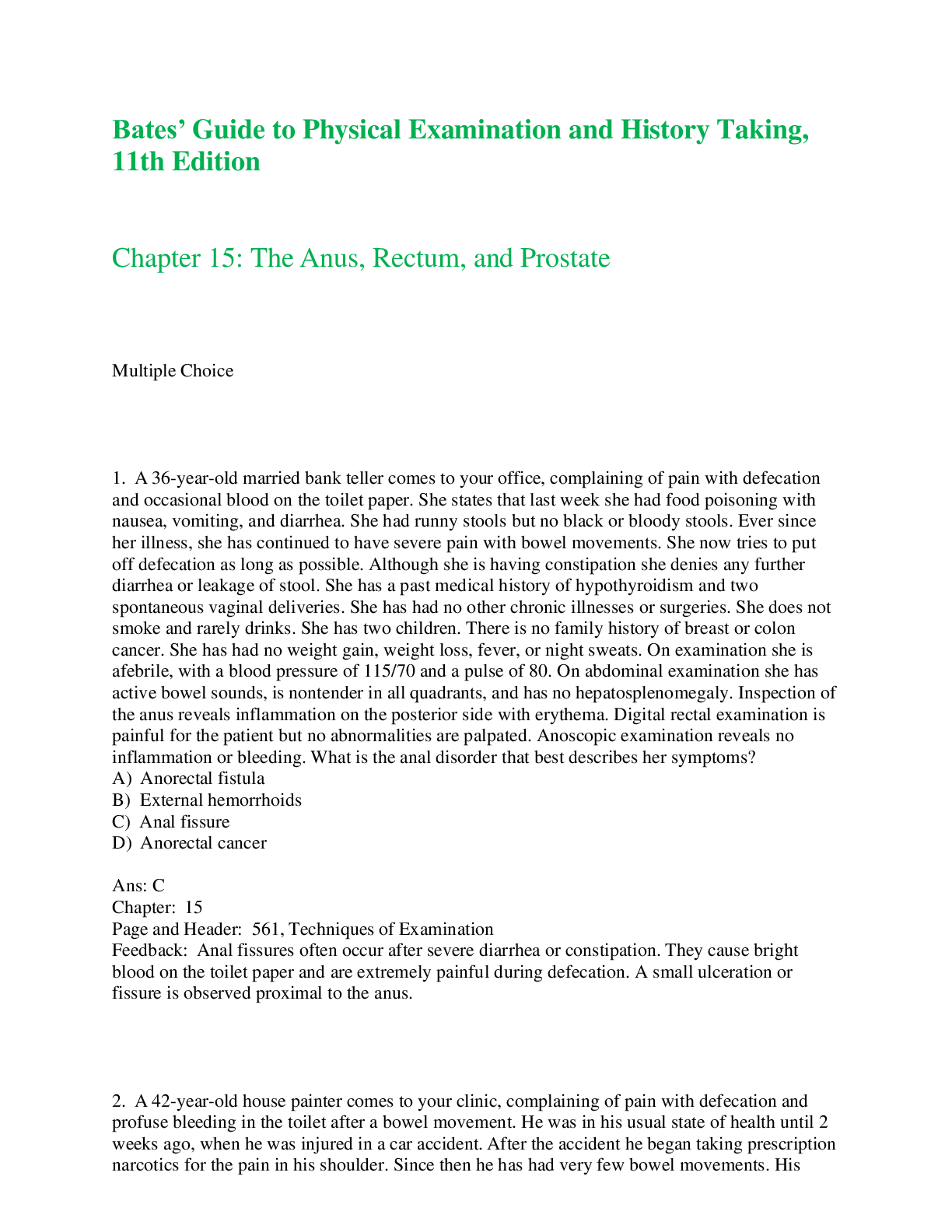*NURSING > EXAM > Bates’ Guide To Physical Examination and History Taking 13th Edition Bickley Test Bank (All)
Bates’ Guide To Physical Examination and History Taking 13th Edition Bickley Test Bank
Document Content and Description Below
CHAPTER 1 Foundations for Clinical Proficiency MULTIPLE CHOICE 1. After completing an initial assessment of a patient, the nurse has charted that his respirations are eupneic and his pulse is 58 be... ats per minute. These types of data would be: a . Objective. b . Reflective. c . Subjective. d . Introspective. ANS: A Objective data are what the health professional observes by inspecting, percussing, palpating, and auscultating during the physical examination. Subjective data is what the person says about him or herself during history taking. The terms reflective and introspective are not used to describe data. DIF: Cognitive Level: Understanding (Comprehension) REF: p. 2 MSC: Client Needs: Safe and Effective Care Environment: Management of Care 2. A patient tells the nurse that he is very nervous, is nauseated, and feels hot. These types of data would be: a . Objective. b . Reflective. c . Subjective. d . Introspective. ANS: C Subjective data are what the person says about him or herself during history taking. Objective data are what the health professional observes by inspecting, percussing, palpating, and auscultating during the physical examination. The terms reflective and introspective are not used to describe data. DIF: Cognitive Level: Understanding (Comprehension) REF: p. 2 MSC: Client Needs: Safe and Effective Care Environment: Management of Care 3. The patients record, laboratory studies, objective data, and subjective data combine to form the: a . Data base. b . Admitting data. c . Financial statement. d . Discharge summary. ANS: A Together with the patients record and laboratory studies, the objective and subjective data form the data base. The other items are not part of the patients record, laboratory studies, or data. DIF: Cognitive Level: Remembering (Knowledge) REF: p. 2 MSC: Client Needs: Safe and Effective Care Environment: Management of Care 4. When listening to a patients breath sounds, the nurse is unsure of a sound that is heard. The nurses next action should be to: a . Immediately notify the patients physician. b . Document the sound exactly as it was heard. c . Validate the data by asking a coworker to listen to the breath sounds. d . Assess again in 20 minutes to note whether the sound is still present. ANS: C When unsure of a sound heard while listening to a patients breath sounds, the nurse validates the data to ensure accuracy. If the nurse has less experience in an area, then he or she asks an expert to listen. DIF: Cognitive Level: Analyzing (Analysis) REF: p. 2 MSC: Client Needs: Safe and Effective Care Environment: Management of Care [Show More]
Last updated: 2 years ago
Preview 1 out of 225 pages
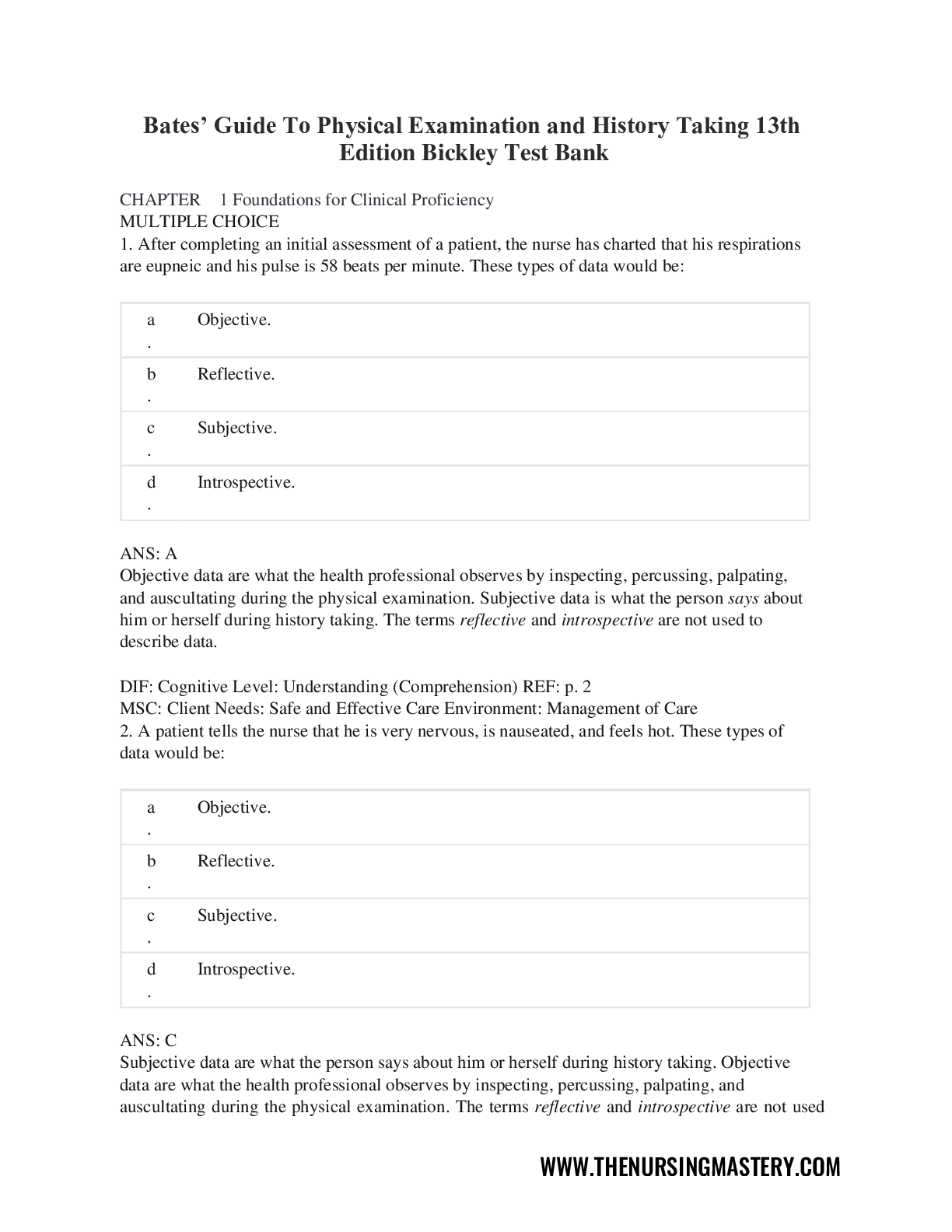
Buy this document to get the full access instantly
Instant Download Access after purchase
Buy NowInstant download
We Accept:

Reviews( 0 )
$14.00
Can't find what you want? Try our AI powered Search
Document information
Connected school, study & course
About the document
Uploaded On
May 26, 2022
Number of pages
225
Written in
Additional information
This document has been written for:
Uploaded
May 26, 2022
Downloads
0
Views
86



 (2).png)


.png)



 (1).png)


.png)


